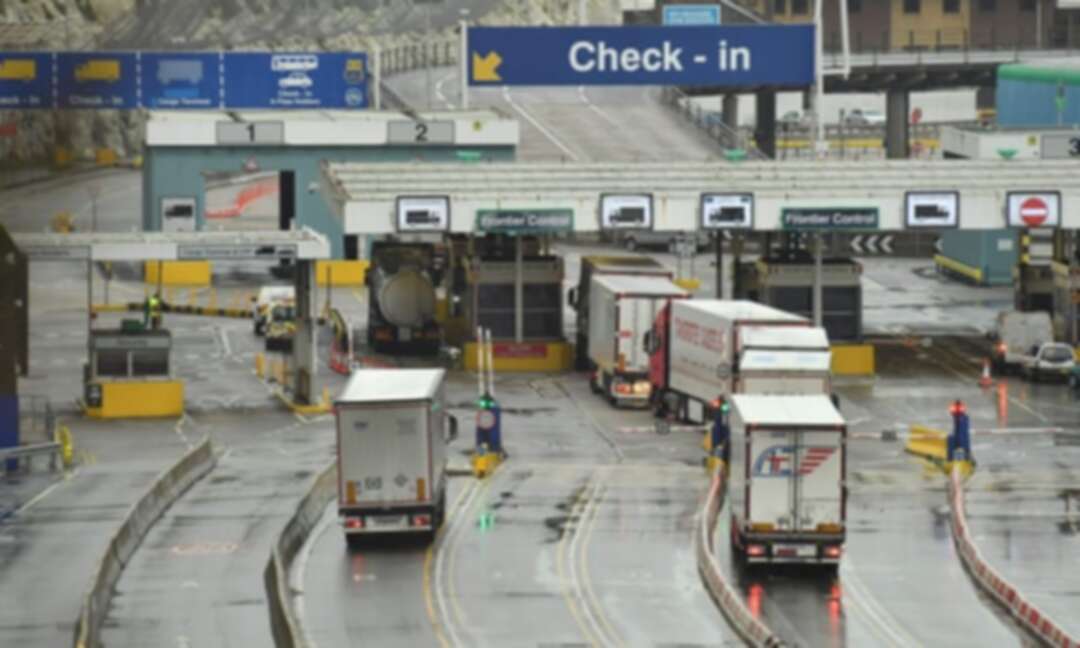-
Customers in Europe hit by post-Brexit charges when buying from UK

Shoppers tell of shock at unexpected bills for VAT or customs duty as some retailers stop shipping to continent
Customers in Europe buying products ranging from furniture to pet food from UK companies are receiving unexpected bills for VAT and customs duty or finding household names have stopped shipping to the continent, as post-Brexit trading rules bite.
“We bought a €47 <£42> shelf from Next for our bathroom,” said Thom Basely, who lives in Marseille. “On the morning it was supposed to be delivered we received an ‘import duty/tax’ demand for over €30, like a ransom note. It came as a complete surprise.”
A Frankfurt resident who ordered cycle clothing from a UK company was sent a tax and duty demand for €102, while a woman in the Netherlands who bought trousers in December “with no issues” faced a €40 bill for two more pairs ordered in January.
Chris Hickson, a retired logistics and freight forwarding expert living in France, said many people may have been surprised because they believed the tariff-free trade deal negotiated between the UK and EU meant there would be no such extra charges.
“Unfortunately, tariffs are not the same as customs duties,” Hickson said. Customs duty is a charge that has to be paid on many goods imported into the EU from countries outside the European customs union – including Britain.
Other European customers have been informed that such iconic British retailers as the luxury food store Fortnum & Mason were unfortunately “unable to send any products to European countries at this current time, due to Brexit restrictions”.
https://twitter.com/JuliadeCadenet/status/1346838937508188165
Customers of the department store chain John Lewis, also popular with British citizens living in the EU, who value its “never knowingly undersold” price match guarantee and reliable customer service, have also been disappointed.
Until December, the retailer offered EU delivery for many items on sale through its website, including clothes. But anyone requesting shipping to Europe is now greeted by a page stating: “We are no longer taking orders for international delivery.”
Some retailers, such as George at Asda, have promised no additional charges, but several international platforms including Asos have halted deliveries to Europe from their UK sites, instead directing buyers to national versions in, for example, France.
David Martin, who lives in the Creuse region in central France, said he switched his regular order for dog food from the pet supplies company Zooplus to its Irish site after being told the UK platform was no longer accepting orders from the continent.
An “import fees deposit”, meanwhile, is now automatically added to orders from continental Europe placed via Amazon’s UK website, nearly doubling the cost of some items and making it significantly cheaper to find an EU alternative.
Tariffs are direct taxes applied by governments on goods imported from a different country, mainly in order to raise their price and thus protect domestic manufacturers. Customs duties are indirect taxes on goods from abroad charged to importers.
Hickson said customs duties were mostly collected by the international shipping companies, such as DHL or UPS, responsible for transporting the goods, with customers notified of the charge – and obliged to pay – before delivery.
“Many vendors are not yet aware that this is the case, or if they are may not be able to say what the bill will be,” he said. “It depends, as does VAT, on the category of goods and their value and calculating can be very complicated.”
According to a leading French consumer website, goods ordered from the UK worth less than €150 should not attract customs duty. Goods ordered from the UK worth more than that, whether produced in or outside Britain, will incur charges.
The rate varies according to the product, but the site cited trainers ordered from a UK website for £270 but manufactured in and shipped from China. Adding customs duty of 16.9% and 20% French VAT would bring their cost to about £378, it said.
Continental buyers should no longer be charged British VAT on their UK purchases but must pay local VAT in their country of residence, although this is waived for orders under €22 until 31 July. Platforms such as Amazon are entitled to collect continental VAT on orders worth less than €150.
“It’s a hugely complex situation,” Hickson said. “My recommendation to anyone in the EU looking to buy goods in the UK is: don’t order anything until you know what the duty and VAT will be. And be patient. This should all sort itself out eventually, but it’s going to take some time.”
source: Jon Henley
Levant
You May Also Like
Popular Posts
Caricature
BENEFIT Sponsors BuildHer...
- April 23, 2025
BENEFIT, the Kingdom’s innovator and leading company in Fintech and electronic financial transactions service, has sponsored the BuildHer CityHack 2025 Hackathon, a two-day event spearheaded by the College of Engineering and Technology at the Royal University for Women (RUW).
Aimed at secondary school students, the event brought together a distinguished group of academic professionals and technology experts to mentor and inspire young participants.
More than 100 high school students from across the Kingdom of Bahrain took part in the hackathon, which featured an intensive programme of training workshops and hands-on sessions. These activities were tailored to enhance participants’ critical thinking, collaborative problem-solving, and team-building capabilities, while also encouraging the development of practical and sustainable solutions to contemporary challenges using modern technological tools.
BENEFIT’s Chief Executive Mr. Abdulwahed AlJanahi, commented: “Our support for this educational hackathon reflects our long-term strategic vision to nurture the talents of emerging national youth and empower the next generation of accomplished female leaders in technology. By fostering creativity and innovation, we aim to contribute meaningfully to Bahrain’s comprehensive development goals and align with the aspirations outlined in the Kingdom’s Vision 2030—an ambition in which BENEFIT plays a central role.”
Professor Riyadh Yousif Hamzah, President of the Royal University for Women, commented: “This initiative reflects our commitment to advancing women in STEM fields. We're cultivating a generation of creative, solution-driven female leaders who will drive national development. Our partnership with BENEFIT exemplifies the powerful synergy between academia and private sector in supporting educational innovation.”
Hanan Abdulla Hasan, Senior Manager, PR & Communication at BENEFIT, said: “We are honoured to collaborate with RUW in supporting this remarkable technology-focused event. It highlights our commitment to social responsibility, and our ongoing efforts to enhance the digital and innovation capabilities of young Bahraini women and foster their ability to harness technological tools in the service of a smarter, more sustainable future.”
For his part, Dr. Humam ElAgha, Acting Dean of the College of Engineering and Technology at the University, said: “BuildHer CityHack 2025 embodies our hands-on approach to education. By tackling real-world problems through creative thinking and sustainable solutions, we're preparing women to thrive in the knowledge economy – a cornerstone of the University's vision.”
opinion
Report
ads
Newsletter
Subscribe to our mailing list to get the new updates!






















